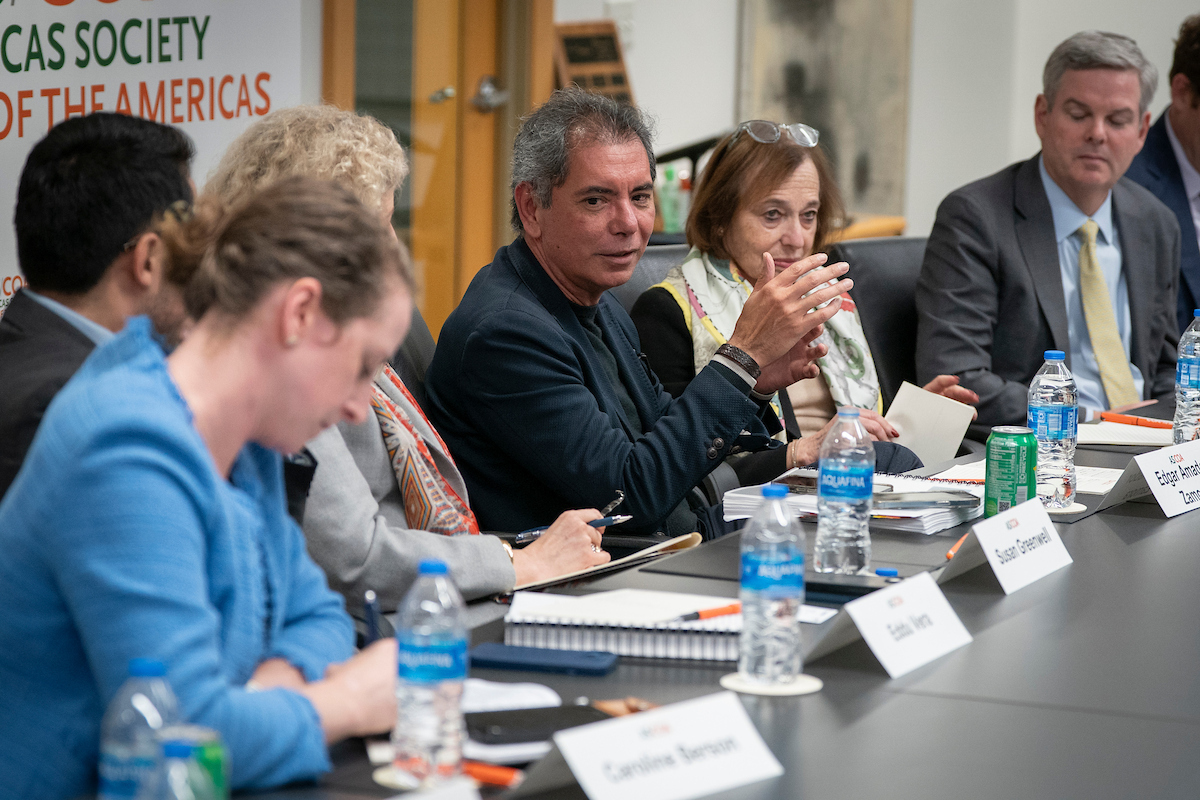Ríos Montt Case: Guatemala's Landmark Genocide Trial Begins
Ríos Montt Case: Guatemala's Landmark Genocide Trial Begins
Former military leader José Efraín Ríos Montt stands trial for genocide and crimes against humanity starting March 19. AS/COA looks at key dates and actors surrounding the prosecution.
Guatemala marks a global first on March 19: the prosecution of a former head of state for genocide in a domestic—rather than international—court. José Efraín Ríos Montt, a general who came to power through a coup and ruled the country from 1982 to 1983, will be tried for genocide and crimes against humanity. José Mauricio Rodríguez Sánchez, Ríos Montt’s chief of military intelligence, also faces these charges. The two men stand accused of being the “intellectual authors” of the murder of nearly 1,800 indigenous Mayans, the forced displacement of 29,000 people, sexual violations, and torture between 1982 and 1983. A second charge against Rio Montt says he was responsible for the death of around 200 people in the Peten region in 1982. During Guatemala’s 36-year civil war that ended in 1996, an estimated 200,000 people died or went missing. Currently, Ríos Montt is under house arrest, while Rodríguez Sánchez is in prison.
AS/COA Online looks at key information about the trial, including dates, important actors, and trial coverage.
Dates: The trial beginning March 19 will address the first genocide charge of 15 massacres taking place in the Quiche region in 1982 and 1983. Proceedings are expected to last at least six weeks. The second genocide charge of a 1982 massacre in Peten will be heard in a separate trial, though a date has yet to be established.
Important Actors
- Judges: Three judges will preside over the proceedings in the First High-Risk Tribunal A court. Judge Jazmin BarRíos will serve as the chief justice; she participated in past prosecutions of civil-war military forces. Judge Patricia Bustamente and Pablo Xitumul will also preside.
- Claudia Paz y Paz: Guatemala’s attorney general renewed efforts to prosecute Ríos Montt after she took office in January 2010. The former leader’s trial and house arrest came at the behest of her office, reports Reuters. Paz y Paz said in March that the trial is “sending the most important message of the rule of law—that nobody is above the law.”
- CICIG: The UN-run International Commission against Impunity in Guatemala began operating in 2007, charged with investigating and promoting prosecutions against illegal security forces, as well as strengthening the rule of law. The CICIG is not acting as a civil party to the case, but said in a January press release that it welcomes the trial and shows a “clear signal to Guatemalans that nobody is above the law.”
- President Otto Pérez Molina: Guatemala’s current leader served as a general during Guatemala’s civil war, raising questions about his support for CICIG and the attorney general. But the CICIG’s mandate was extended to 2015, and Paz y Paz continued in her role after Pérez Molina’s election. Commenting on the trial, the president told Spain’s ABC that Ríos Montt had committed “abuses and undeniable excesses” that should be judged, but that genocide had “not been committed in Guatemala.”
Legal History: Rodríguez Sánchez was arrested and imprisoned in January 2011. Ríos Montt’s term as a congressman ended last year; as a result, he lost criminal immunity. In January 2012, Judge Carol Patricia Flores formally accused Ríos Montt on genocide charges and placed him under house arrest. Ríos Montt and Rodríguez Sánchez were formally indicted in March 2012. On March 12 of this year, Guatemala’s Constitutional Court dismissed Ríos Montt’s appeal, saying he was ineligible for amnesty.
Trial Coverage and Documents
- Open Society created a portal with a guide to who’s who, a timeline of events, and news updates.The latest on the trial can also be found on the portal’s Twitter and Facebook feeds.
- In 1999, the UN sponsored a truth commission to investigate wartime atrocities in Guatemala. See the full report.
- Visit the website of Guatemala’s attorney general.
- Several organizations provided amicus briefs in support of the prosecution. See the International Law Experts’ English-language brief.








